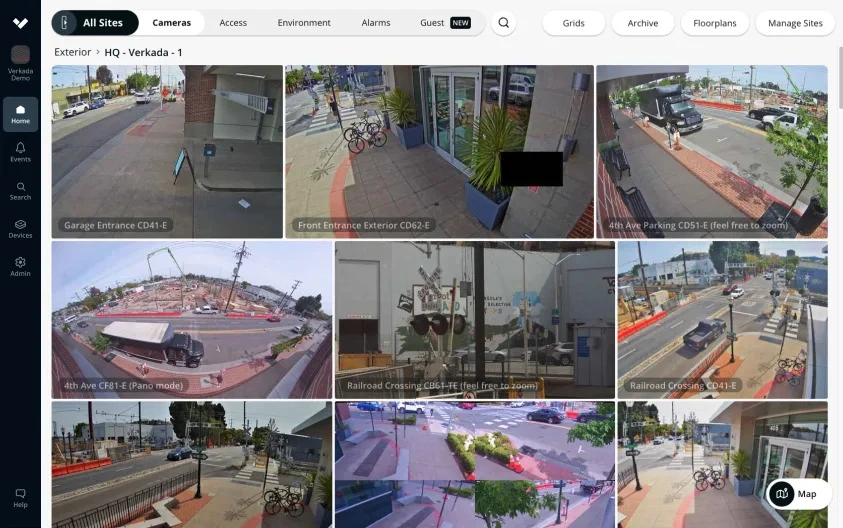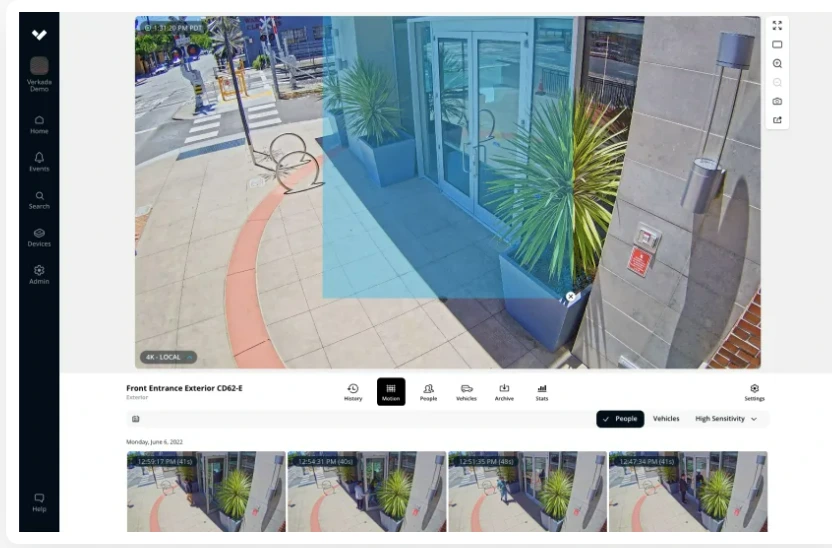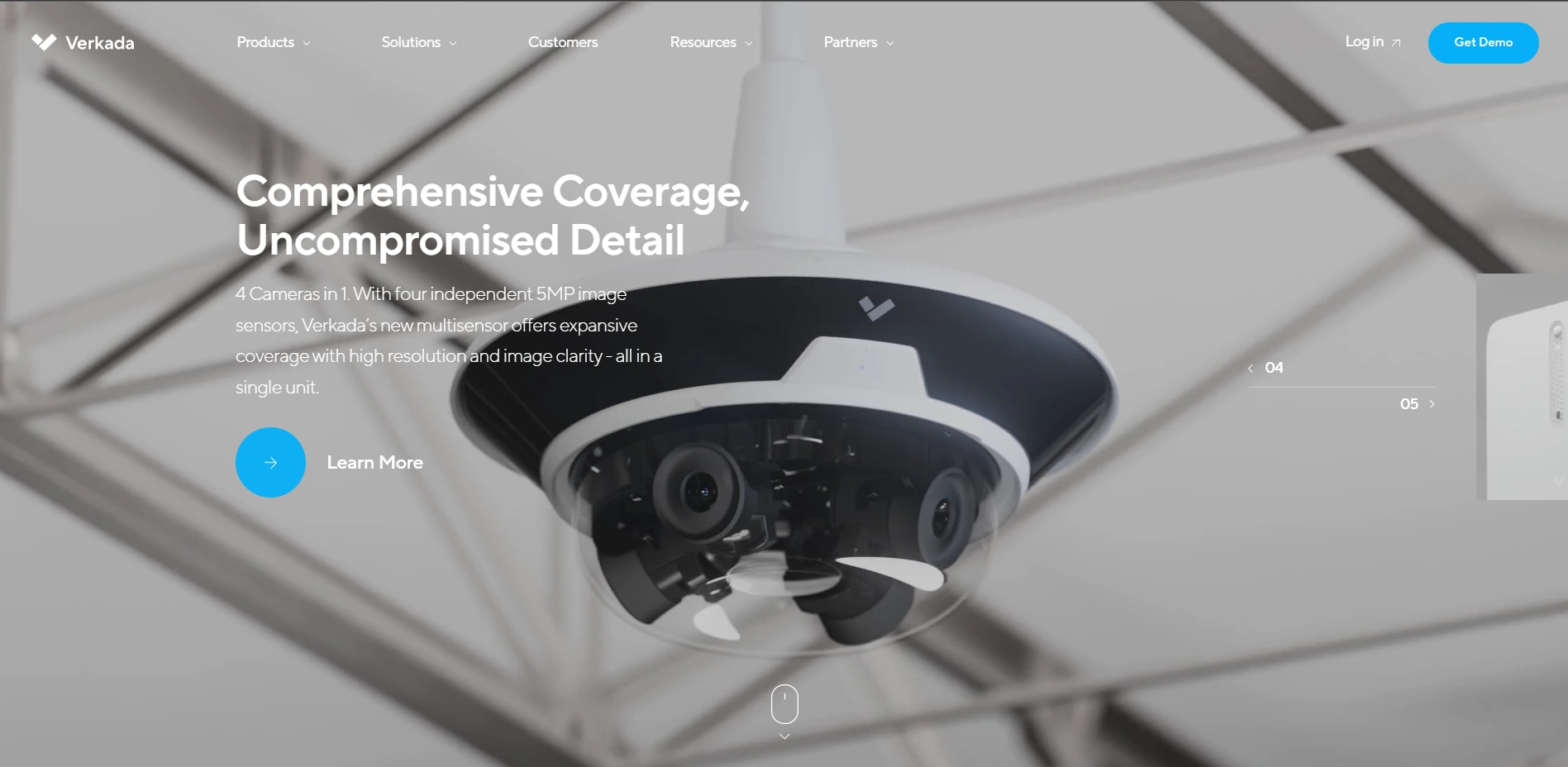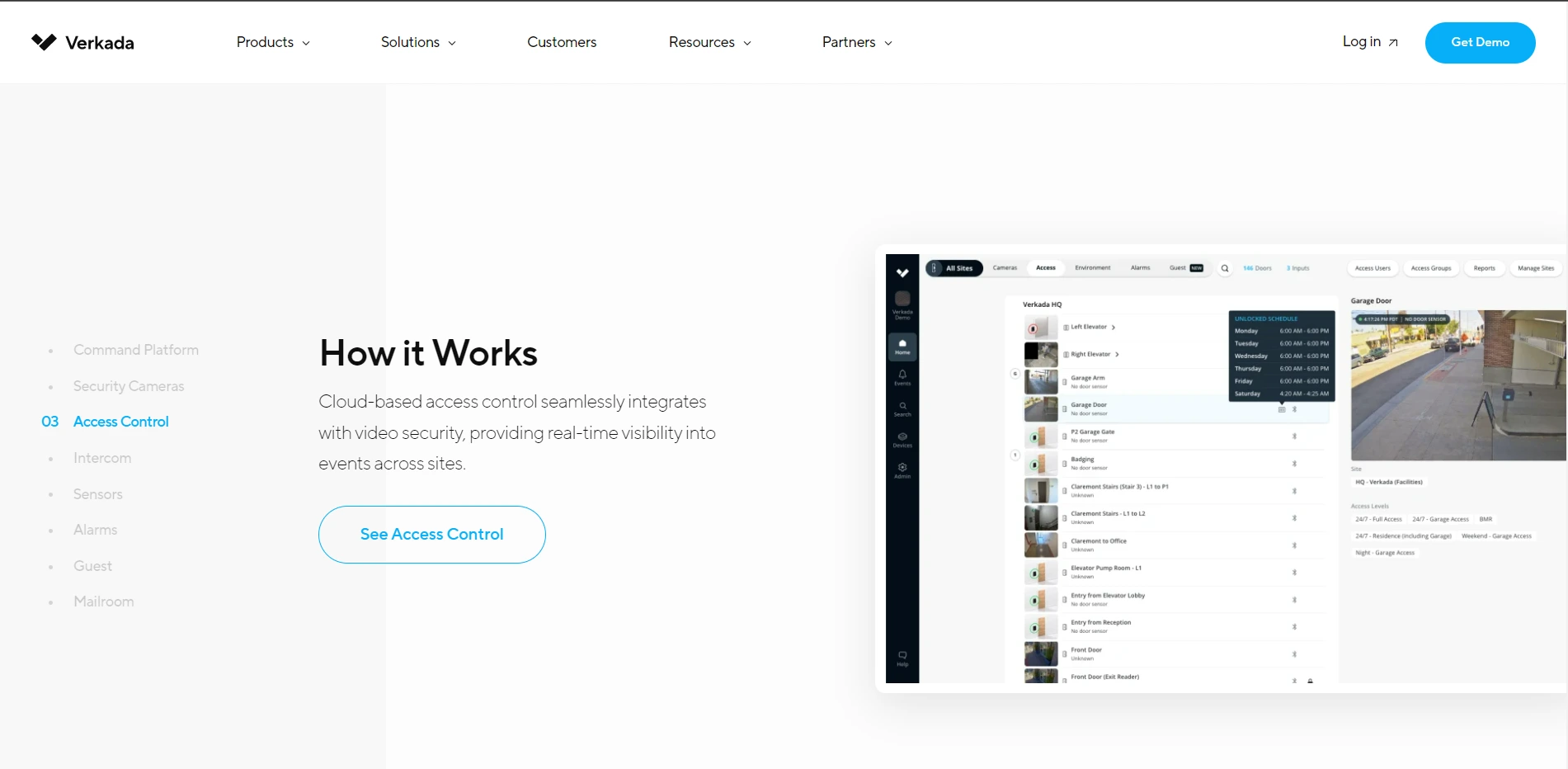Automating Surveillance Using Image Classification AI Model

Table of Contents
Introduction
Security surveillance is crucial to many commercial, industrial, and residential industries. Though, in traditional security systems rely mostly on manual monitoring, which is both time-consuming and error-prone.
Moreover, traditional security systems can be expensive and may not always provide adequate protection. The industry's problem is the need for accurate and efficient image classification to enhance security surveillance.

Figure: Security supervision using Computer vision
In recent years, security surveillance has become increasingly important, and the market for security solutions is expected to reach USD 167.12 billion by 2025, according to a report by Grand View Research.
The need for image classification in security surveillance has also increased with the rise of criminal activities and security threats.
The traditional methods of manual monitoring and security personnel have limitations regarding accuracy and efficiency.
As a result, there is a significant demand for computer vision technology to enhance security surveillance.
The cost of security breaches can be significant for many industries, ranging from loss of property and assets to damage to reputation and legal fees.
According to a report by IBM, the average data breach cost in 2020 was USD 3.86 million.
The cost of manual monitoring and traditional security measures can also add up over time, resulting in significant company expenses.
Computer vision technology can enhance security surveillance by providing accurate and efficient image classification. This technology uses machine learning algorithms to analyze images and videos, enabling automated monitoring and detection of security threats.
With computer vision, security systems can detect and classify objects, such as vehicles, people, and animals, in real-time. This technology can also recognize specific patterns and behaviors, alerting security personnel to threats.
Verkada is a company that specializes in providing integrated software and hardware solutions for cloud-based security and surveillance.
They offer a range of security cameras, access control systems, and video management software designed to seamlessly enhance security and surveillance capabilities.

Figure: Verkada’s webpage
On the hardware side, Verkada provides a range of indoor and outdoor security cameras that use advanced computer vision technology to analyze video footage in real time.
Their cameras are designed to be easy to install and use, and they offer a range of features such as 4K resolution, low-light capabilities, and remote pan-tilt-zoom (PTZ) control.
On the software side, Verkada provides a web-based platform that allows users to access and manage their security footage from anywhere, anytime.
The platform provides a range of features, including real-time alerts and notifications, customizable access controls, and video analytics, such as people and vehicle detection.
Verkada's software and hardware solutions are designed to work together seamlessly, providing users with an integrated and intuitive experience.
Additionally, Verkada provides a range of professional services, including installation, maintenance, and technical support, to ensure its clients have the highest level of security and surveillance.
Role of Computer Vision
Computer vision plays a crucial role in image classification for enhancing security surveillance. Computer vision is a field of artificial intelligence that focuses on enabling computers to interpret and analyze digital images and video.
In the context of security surveillance, computer vision technology can automatically analyze and interpret video footage, enabling the detection of potential security threats.
Image classification is a common computer vision task involving analyzing an image and assigning it to predefined categories. In security surveillance, image classification can identify specific objects or people, such as vehicles or individuals, in real-time video footage.
This can help security personnel quickly identify potential security threats and take appropriate action.
Computer vision algorithms can also detect and track motion in video footage, enabling the detection of unusual or suspicious activity.
For example, computer vision can detect people or vehicles moving in restricted areas or abnormal patterns, triggering an alert to security personnel.

Figure: Analysing images using computer vision
In addition to image classification, computer vision plays a key role in bounding boxes and key point annotations for enhancing security surveillance.
Bounding box annotations involve drawing a rectangle or box around an object of interest in an image or video frame.
This common computer vision task is used in object detection and tracking to identify and locate specific objects in video footage.
In security surveillance, bounding box annotations can identify and track people, vehicles, or other objects of interest, enabling security personnel to detect and respond to potential security threats quickly.
Key point annotations involve identifying specific points of interest in an image or video frame, such as facial features or landmarks.
This is commonly used in facial recognition technology, where keypoint annotations can identify and match individuals in real-time video footage. Key point annotations can also identify and track other objects, such as vehicles or moving objects, in video footage.
Verkada is a cloud-based physical security company that provides end-to-end video surveillance, access control, and environmental monitoring solutions.
Their product offerings include indoor and outdoor security cameras, door readers, and sensors for monitoring temperature, humidity, and air quality.
About Verkada
Verkada provides both software and hardware solutions for physical security. Their hardware products include indoor and outdoor security cameras, door readers, and environmental sensors that monitor temperature, humidity, and air quality.
These devices are designed to be easy to install and integrate with Verkada's cloud-based software platform.

Figure: Verkadas Webpage
Their software platform provides a central management system for their hardware devices, allowing users to remotely access and control their security systems from anywhere with an internet connection.
The platform includes video analytics, real-time alerts, and customizable dashboards for monitoring security and environmental data.
Verkada's software platform also offers advanced analytics capabilities, such as people and vehicle detection, which can be used for business intelligence and security purposes.
The platform is designed to be user-friendly and intuitive, with a modern interface that allows users to navigate and manage their security systems easily.
Verkada offers a range of hardware solutions for physical security, including indoor and outdoor security cameras, door readers, and environmental sensors.
These devices are designed to be easy to install and integrate with Verkada's cloud-based software platform.
Their security cameras are available in various models, including dome, bullet, and panoramic cameras.
They are designed to provide high-quality video footage with advanced features such as facial recognition, people and vehicle detection, and license plate recognition.
They also offer door readers that provide secure access control for buildings and facilities.

Figure: Verkada’s Camera
Overall, Verkada provides a comprehensive end-to-end physical security solution, with hardware and software components designed to work seamlessly together.
How Verkada Utilizes Computer Vision
Verkada uses computer vision technology to provide advanced analytics capabilities in its physical security solutions.
Computer vision uses algorithms and machine learning models to analyze and interpret visual data from cameras and other imaging devices.
Verkada's cameras have computer vision technology to detect and recognize objects, people, and vehicles in real time.
This allows the cameras to trigger alerts based on specific events, such as a person entering a restricted area or a vehicle driving the wrong way.

Figure: Event analysis using computer vision (Verkada)
In addition, Verkada's computer vision technology can be used to provide business intelligence insights.
For example, their cameras can track customer traffic patterns in a retail store, allowing store owners to optimize their layout and improve their customer experience.
Verkada's computer vision technology is powered by its cloud-based software platform, which uses advanced algorithms and machine learning models to analyze video footage and generate actionable insights.
These insights can help businesses and organizations improve their physical security and make data-driven decisions to improve their operations.
Conclusion
In conclusion, computer vision technology enhances security surveillance by providing accurate and efficient image classification. The traditional methods of manual monitoring and security personnel have limitations regarding accuracy and efficiency, and they can be expensive over time.
With computer vision, security systems can detect and classify objects in real-time, recognizing specific patterns and behaviors and alerting security personnel to potential threats.
Companies like Verkada specialize in providing integrated software and hardware solutions for cloud-based security and surveillance, offering a range of security cameras, access control systems, and video management software that work seamlessly together to enhance security and surveillance capabilities.
Computer vision technology can also detect and track motion in video footage, enabling the detection of unusual or suspicious activity. Moreover, bounding boxes and key point annotations are crucial tasks in computer vision technology used in object detection and tracking to identify and locate specific objects in video footage.
Verkada provides hardware and software solutions for physical security, including indoor and outdoor security cameras, door readers, and environmental sensors that monitor temperature, humidity, and air quality.
Their software platform provides a central management system for their hardware devices, allowing users to remotely access and control their security systems from anywhere with an internet connection.
The platform includes video analytics, real-time alerts, and customizable dashboards for monitoring security and environmental data, offering advanced analytics capabilities for business intelligence and security purposes.
In this blog, we talked about Verkada. More such companies work in the field of Automating Surveillance Using Image Classification AI Models. Some of these include Herta Security, BriefCam, and Avigilon.

Simplify Your Data Annotation Workflow With Proven Strategies
Download the Free Guide

